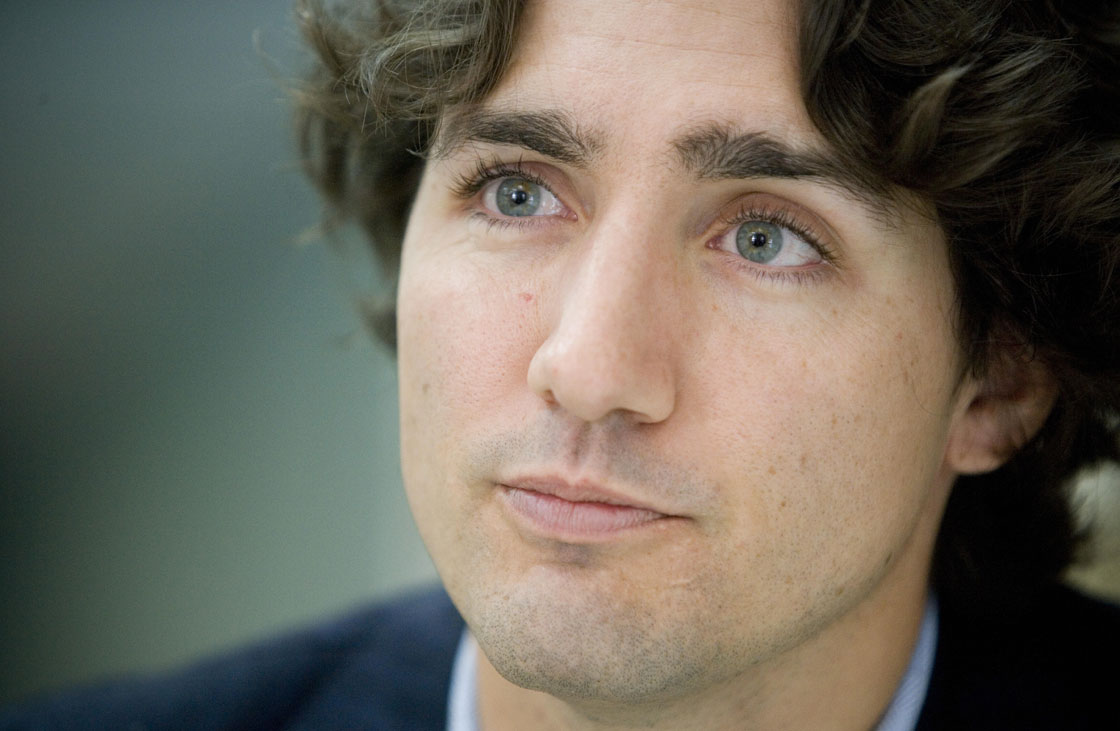OTTAWA – Justin Trudeau is riding to the rescue of Conservative backbenchers who feel they’re being muzzled by stifling party discipline imposed by Prime Minister Stephen Harper.

The newly minted Liberal leader intends to introduce a motion that would strip party whips of their power to decide which MPs are allowed to make members’ statements in the House of Commons.
Trudeau’s motion, to be debated and put to a vote on Monday, will put Harper’s legendary iron control over his caucus to the test, providing an outlet for restless Tory backbenchers to defy their leader.
“Members of Parliament from all parties should be community leaders, free to share the priorities and express the views of those they represent,” Trudeau said in a statement.
“Canadians must have confidence that the candidates they elect will represent their views in Ottawa, not Ottawa’s views to them.”
The prime minister is already facing a rebellion by backbenchers fed up with their inability to speak their minds during the daily 15 minutes allotted for members’ statements.
The revolt was triggered last month when British Columbia MP Mark Warawa was removed from the Tory roster because he intended to talk about abortion – an explosive subject which divides Conservatives and which Harper is determined to keep a lid on.
Warawa has asked Speaker Andrew Scheer to rule that his privileges as an MP were breached; at least eight other Conservative MPs have openly backed his complaint.
- Life in the forest: How Stanley Park’s longest resident survived a changing landscape
- ‘Love at first sight’: Snow leopard at Toronto Zoo pregnant for 1st time
- Carbon rebate labelling in bank deposits fuelling confusion, minister says
- Buzz kill? Gen Z less interested in coffee than older Canadians, survey shows
The Liberals, who were in the midst of a leadership contest until last Sunday, have not so far weighed in on the issue.
Indeed, some aggrieved Conservative backbenchers have complained about the lack of support they’ve received from opposition parties.
But Trudeau, who made democratic reform the centrepiece of his successful leadership bid, intends to remedy that with his motion, notice of which is to be given later today.
According to his office, the motion will call on MPs to support changing the rules governing members’ statements.
Instead of the current practice wherein party whips supply the Speaker with the list of MPs approved to make statements on any given day, the motion would require the Speaker to recognize MPs in alphabetical order, by party. MPs would be able to trade their speaking orders, providing some flexibility for those who might be out of town when their turn comes up or who want to urgently address an issue in their ridings.
Independent MPs would be considered as a group, in alphabetical order.
A majority vote of MPs is all that is required to change the rules of procedure for the Commons so Trudeau’s motion could have real effect, pre-empting Scheer’s ruling on Warawa’s complaint, if it is passed.
The motion is consistent with Trudeau’s leadership campaign promise to empower MPs and enable them to represent their constituents’ views in the Commons.
He has said a Liberal government would allow its backbenchers to vote as they see fit on all bills and motions, other than those that involve a key element of the party’s election platform, budget or the charter of rights.
Harper loyalists have argued that the prime minister promised Canadians he would not re-open the divisive abortion debate and is, thus, within his rights to prevent Tory backbenchers from speaking on the subject.
Conservative whip Gordon O’Connor has likened MPs to members of a sports team and he maintains only the coach should decide who gets to play.
The issue erupted when an all-party committee ruled last month that Warawa’s private members’ motion – calling on the Commons to condemn the practice of sex-selective abortion – was non-votable, effectively killing it.
Warawa was on the Tory roster for members’ statements that day but was removed once O’Connor found out the MP intended to use his one-minute statement to castigate the committee for its decision.
Earlier this week, Warawa announced he would not appeal the committee’s ruling to the Speaker, which could have led to a rare secret ballot vote by all MPs. His complaint about being denied the right to speak during members’ statements still stands; Scheer has not yet ruled on the matter.
The NDP has offered equivocal support to the Tory backbenchers, without recommending how the Speaker should rule.
New Democrat House leader Nathan Cullen has said his party does not vet its MPs’ statements. However, two New Democrats – John Rafferty and Bruce Hyer – were stripped of their right to speak in the Commons earlier this year, including their ability to make members’ statements, after voting against the party position in support of the now-defunct long-gun registry.
Hyer now sits as an independent.


Comments